|
I know it's been a few days, but I'm sitting on a couple of pretty special stories. Check back in a couple days. For now, a short one:
"Hey," a young man in a hat said at Eighth Avenue. He had walked up to the front to speak. "I just wanted to let you know you made my day." "Oh, awesome! That's why I'm here!" "Yeah, it makes a difference when the driver cares about people, talks to people..." "Thank you. Thank you. I ride the bus all the time, so I try to be… the bus driver I'd want the driver to be, you know?" "Yeah," he said. "Oh, its huge." "Dude, it makes my day to hear you say this!" "No, it makes my day!" I guess we could argue about it... he continued ruefully, "I was having a really shitty day." "Well. There's always time for it to turn around." "For sure. Always time for it to turn around!" "So true!" I think it just did, in that short exchange. Bus rides are so much more than getting from one point to another; they're an activity in their own right, and in choosing to take part you expand the possibilities for what can happen. He was as a man transformed as he walked ahead on the sidewalk, keeping a sprightly pace now, turning back to wave big. His eyes had that spark in them, the glint of joy and capability you can't help but agree with. We can really do something with ourselves, with today, our time in this life. I wondered who he would run into next, who would be lucky enough to receive that good energy. Maybe the snowball carried forward for the rest of the night.
2 Comments
Look at that bus driver, you might think to yourself. He's just sitting there, driving. I do that all the time in my car. How hard could it be?
The answer is, it can be excruciating. Driving may not seem physically exhausting, but consider the feeling of taking an eight-hour road trip every day, except using an industrial vehicle with a steering wheel the size of a laundry spinner, that's logged not thirty or fifty thousand miles but a several hundred thousand. Oddly, the activity I feel it most compares to is treading water: you may want to rest, but you can't. You have to keep going. I used to ride a certain bus in every day and noticed how rude the driver was with the passengers. Specifically, how short he was with them. Brusque. It's his ship, I guess. I noticed it, until I one day noticed its absence in his attitude. He was downright chipper. It was the same guy, but… what had changed? In chatting with him I discovered he had at long last gotten what he'd been wanting for so many years: back surgery. It was like night and day, he said. He wasn't in continuous stabbing pain for eight hours a day anymore. The discs in his spine were finally fine, and he could smile with the folks and go back to being how he probably always was before all this started. Come this July I'll have driven Metro buses for ten years. When I started, King County had fitness experts who would talk to operators and give them specialized advice on how to set up their seats and so on. Those ladies are long gone, and although operators have always talked about torn rotator cuffs, herniated discs, and knee surgery, they do so more now. I'm no authority and the suggestions below are unscientific, but they do come on the heels of a decade of experience. This is what has worked for me. You can't have a good time at this job if you're in pain. These are a few tips I've picked up along the way from various professionals that you, fellow bus driver, commercial vehicle operator, fellow office or other sedentary job-possessing friend, might find useful. I owe much of my happiness to those who have taught me the information below, and the least I can do is pass it along. For suggestions regarding customer service, click here. On the Coach During operations Setting up the seat:
Regarding steering:
Regarding the back:
Regarding the legs:
When lifting items, do so with your legs, not your back. This will sound meaninglessly zen, but you operators will understand: Let the bus drive itself. Just guide it along. The easiest way to do this is by relaxing your pace. You'll notice you can put much less pressure into all your movements than you think, and the cumulative positive impact this has on your body is noticeable. On a break
Regarding the rotator cuff: Three stretches of use. You can do them all within one minute, and it'll change the next hour.
At Home Regarding the legs:
Regarding the back:
Overall:
Diet:
See you on the road! They looked like a lively bunch– a gregarious crew of five in their twenties, two girls with a stroller and a trio of boisterous boys in tow. They insisted the ladies get on first.
"How's it goin'!? Gentlemen, goodmorning!" I hollered, in the dim first minutes of the new day. I wish I could recall their dress and appearance more clearly. Visually, the type was familiar: massive t-shirts, dresses more like, sports and music logos emblazoned here and there, long chain necklaces pendulating to and fro, echoing the deep sag of their pimp-rolling jeans, dirty denim in the early morning hour. The trouble with people who fit in is you don't remember them very well; but they were more than their appearance. No one's really a cog in the machine when it comes to personality. "You got precious cargo there," I said as I knelt the bus for their stroller. "Beautiful lookin' baby." The young mother smiled in thanks. They slinkied in, conquering the front of the bus rather than the back, in a new twist– up here is where the party's at tonight. My enthusiasm became theirs, and versa vice. They were free to be their unruly and uproarious selves on the largely empty vehicle. "Wassup, bro? I tell all the bitches aboutchoo," one of the boys avidly blared. "I's like 'man, this guy he drives the bus, bro, gotta check him out!'" I had somehow been teleported to a backyard barbecue, and I was excited. It was impossible to discern whose voice was whose. I gave up trying. Rather, the linguist, anthropologist, and lover of people within me came alive as I mostly listened, catching the slip and slide of overlapping conversation, hearing the camaraderie bubbling beneath the words. "Yo," one asked me. "Do you turn into the 7?" "Sadly no, I apologize. I gotta go home lie down." They carried on. What do the gentlemen of this set chat about? What does small talk look like, on the other side of the tracks? One of the crew, clad in a grey sweatshirt, rubbed his chin as he considered the infant. "Yo. Hey, I love kids. I used ta babysit. How old is he? A he or she?" "'Bout… four months. He's a lil' pimp!" "What a cutie pie, man," the first said gruffly. "I feel grateful when I get to babysit 'cause I used to be a foster kid. I was taken care of a by a single mom, I had no real parents." "Bro. The kids are the future, bro." "Oh man! Babies make our world for generations to come, man! That's our next generation, bro!" That's Grey Sweatshirt talking. He was ecstatic, realizing the import of the lines as he spoke them. He got so excited he stood up. I piped in: "that boy's gonna be our next governor!" "Ey, man!" "My nigga!" "Makin' it happen, you know?" I exclaimed. "You never know!" The mom smiled deeply at my comment. To be judged, especially by those outside her race, not as an unwed young mother but admired, recognized as the architect of something sacred. She and her ladyfriend received the compliment in silence; I think they were tired. The three boys, on the other hand… they processed the good spirits in their own way, weaving together a tapestry of raucous, throaty roars, blurting out assertions they couldn't be more thrilled to realize really were accurate. I was less concerned with which man was saying what than the overall effect*: "Whatever you train 'im to be, dogg!" "God BLESS him, bro!" "Whatever you train 'em to be." "Hey. Kids are our nex' God blessing, bro." "My dad coulda saved me," "Ah will bless kids every DAY. Bein' a foster kid–" "Dass the real deal right there." Grey Sweatshirt tried to pet the baby, who, absurdly, was managing to snooze through all this. Dad: "naw, don't touch him, bro." "My bad, I apologize." "Naw, you good..." The third fellow, wearing a chain necklace: "let him sleep, cause he a beast." Beeeast. Grey Sweatshirt: "he's beautiful, he's a lil' beautiful kid." Dad: "thank you a lot, I appreciate that, bro." "I'm sorry about–" "Naw bro, you good, dude." "I'm like, he sleep." "I respect that I respect it. I have a lotta respect for kids. I gone done some babysittin' in mah long life. I'm twenty-seven and ah babysat a lot." "Yeeeeah." "I used to be a foster kid." "Yo, where we gettin' off at?" "No, I respect you for what you said though." "Naw, we good, bro, we good. You didn't know." At this point, Daniel, the struggling identical street twin mentioned here, barreled onto the bus, asking for and receiving the full package: a transfer, smile, and fistbump, before careening back into the night. The young father saw this. "Hey, you a good dude man, God bless you." "Thanks man, "I replied. "I try to give a little somethin' back, you know?" Chain Necklace: "You a great bus driver you know. I been knowin' you for like twelve months!" Grey Sweatshirt's thoughts began to veer from the baby. He cried out, "honestly, you're the best bus driver in this city, and they not too many of them!" "Thank you so much, man that's huge! I'm not that good!" He boomed in answer, perhaps in recollection of a past experience, "bus drivers be a fuckin' dick!" Dad wasn't nearly as agitated, saying to Sweatshirt, "Ay ay, baby right here." Mr. Chain Necklace was feeling similarly carefree. His mind was on other matters. "I wasn't gonna say it," he said to me with a sly grin. "I wasn't gonna say it, but this guy looks like a… super King County player!" What is a Super King County Player, I wondered. And what would it look like? I was tempted to inquire, but Sweatshirt was heading off to a darker place. "King County need to pay bus drivers some fuckin' respect," he growled. I tried to find something that felt inclusive of all of them. "I appreciate you guys," I said. Necklace: "naw, you cool, but some uh yo colleagues are mad." "I try to balance out for those folks, you know?" Dad: "dass cool though. Do you! Do you, and getcho blessings!" The tapestry was dividing. Grey Sweatshirt opined with nigh-religious fervor, by now on another plane entirely: "I wish bus drivers had some respect for the people!" Chain Necklace, undeterred by such zeal, fingered his necklace as he pondered aloud, to no one in particular: "you know what I'm gonna do? I'm gonna take this bus driver to the club and find him all the feeemales–" Dad: "Amen, bro!" I've never had two more completely different strains of thought thrown at me simultaneously. Each continued as we came to the last stop– Sweatshirt: "Why they treat us with no respect? Drivers gotta treat people wit' respect!" Undeterred Necklace: "–and all they boyfriends gon' say whaaaat? And we got this skinny athletic good-lookin' young muthafucka…" Sweatshirt: "I swear to God they got some stubborn fucked up individual bus drivers. They don't give a fuck about pedestrians–" Necklace: "Hey bro, I 'unno why I wanna find you a girl so bad, bro," Sweatshirt: "They think cause they're gettin' paid to drive the bus, they think they're more powerful than people who ride th' bus!" Necklace: "Lemme gi' you a handshake, man. I'ma find you some beautiful women, dogg." The Dad, in helping his stroller to the curb, had tried to get a "hey, come on, man" in edgewise, in an effort to calm Mr. Grey Sweatshirt. Even keels seemed important to Dad, and I felt similarly, but I couldn't help but be in complete agreement with Sweatshirt's final line. It's something I tell new full-time bus driver classes: you are not better than the people you pick up. Out loud I said, "Exactly. We're all just the same, you know? We're all just the same." "Exactly, we're human beings!" "Thanks for the love, all you guys," I exclaimed. "You were the highlight. You guys were the highlight!" The divergent paths of their tapestry were rejoining. This was the final stop and there was still much milling around. I noticed for the first time that Chain Necklace was carrying a frame of sorts. I said, "you got some art there?" "Yup, I got art–" "Tight. I do photography." His eyes lighting up: "what? Bro!" There are many reasons I write this blog. I'm concerned with positive interactions in realms known for negative ones, especially in a news culture that focuses on the negative. I'm enthused by the opportunity to speak frankly and from experience on race and class culture as I see it transpire in the street. There's the linguaphile in me. I like offering vignettes that customer service and public service employees might find of interest, and sharing the on-the-ground experience of the city for transit, urban planning, housing, and local government administrators. But sometimes the most enjoyable aspect is just the chance to paint an honest window for those of my readers who don't spend large quantities of time in dangerous urban areas at night. It's an armchair view of a world that doesn't have armchairs, or as a friend once put characterized my writing, "highbrow treatment of what is normally considered lowbrow material." Except this material is true. How do these neighbors of ours share in the human experience? What do they say on their home turf, when the cameras and visitors are out of sight? Chain Necklace enthusiastically withdrew a large pencil drawing, a portrait of a man's face in stark shades of black and white. We all joined in now, weaving together once again, a collective of voices continuing the night's collective tapestry: "Dude, whoa! That's Bruce Lee, right?" "Yup yup!" "Damn! Holy shit, you're a fuckin' artist!" "That belongs in a museum, that's beautiful!" "God damn," "That's a money maker right there," "That's got drama to it…." I stood there, smiling at the sight. Five young people at the corner of Fifth and Jackson, crowding excitedly around an art piece, offering their own version of a critique, buoying each other in spirit and brotherhood. It was an honor to take part, and a pleasure to share the energy and truth of it with you. --- *I got down maybe half of their exchanges. It was coming on so fast and thick. Conversations involving more than one other person are rare on this blog, for the simple reason that it's that much harder to reconstruct the dialogue afterwards. This is about the limit of what I can recall. Bashi and Abdilahi were sprawled out in the front seats, barely able to maintain their seated positions. I previously encounter Bashi here, as I ruminate on class differences, and with Abdilahi here, as he loses one of his eyes. They are an odd couple, united in their love for alcohol. Bashi, the impeccably dressed Kenyan man, one of many East Africans out here on Rainier, standing about together in restaurant parking lots, laundromats, chatting amongst their work limousines.
There they are, the world in a glance out my driver's window: figures in a half circle on an unpaved lot, dressed in oxfords or dashikis, slacks and shiny shoes that click on the gravel. It's not the look of luxury, but of the cosmopolitan concern for good presentation, no matter one's socioeconomic status. You won't find these guys wearing pajamas at the airport. I picture them as a photograph their American-born children and grandchildren will look upon, a dim memory of one weekday afternoon, your uncles and grandparents when they were young, rebuilding their lives in a strange land and trying to keep up their dignity while doing so. Taking a break in their own language, a dashed-off moment from the struggle of it all. Abdilahi is on the other end of the spectrum. He doesn't wear slacks and oxfords. He stumbles through the American experience from one liquor store to the next, in awe. In the generally Sunni population of his native Somalia, the state religion prohibits alcohol and drugs. By comparison, this place is Spring Break. It's Las Vegas. Although Abdilahi's a sweetheart whose notably good-hearted candor I quite enjoy, I don't think it's unfair to say he lacks the discipline of many of his compatriots. They see opportunity; he sees a candy store. The war between long-term goals and short-term solutions is never ending. I see an older Somalian woman getting on the bus now, shaking her head at the two of them, companionable but currently inebriated half-conscious lumps, with the best parts of their personalities on pause. Bashi gathers himself a bit, speaking over a snoozing Abdi, calling out to me through a garbled and distant haze. "Do you drink? You don't drink." "No," I answer. Not a fact I often share (because I dislike how saying so can sound judgmental), but he read my mind anyway. "Why?" "You really want to know?" "Yes." No need to go into the pathetic tragedies I've seen it cause: sometimes you don't need to explain the machinations of yourself. Just: I'm Nathan, and this is how I do it. I say, "I dunno, it's just how I am, how I've always been." "Let me give you some advice." Uuuhhvice. "Don't do it." "Really?" I wasn't expecting that, definitely not given his current state! "Don't start." A wistful voice, regretful. "Truly. It's bad for you, for your body." Abdilahi stirs. "It is," he mumbles from his half prone position. "For your brain," Bashi continuing– "Yeah your brain. Bad for your liver, your skin, messes up your liver. Give you heart disease." "Okay," I reply. "If you say so!" "I am going to quit soon!" "Really!" "I am in the process of quitting," Bashi affirms, with fervor. "Yes. It is a process." It's a distant memory now, the times when Bashi was sober. He wasn't always like this. He once worked for the County, and is quite well schooled. His son is a treasure, a seven-or-eight year-old who has all the street names memorized, with a bright wave and precocious question every time he sees me. How did we get here, to this? He still had a seed of his former drive within him, and I wanted to encourage that. "I respect that," I say. "I think that's one of the hardest things to do, but it's worth it." "It's worth it!" "For yourself, for your family," "For the children!" "Yes, they are the future! The children are the future!" "My daughter, she loves me. My son, they both…." The deep pain in his voice. There is no pretense here. "But it's so hard sometimes." "It is. Life is." "It's really hard. Let me ask you something. Would you forgive your wife, she ran out on you?" "What?" "Would you forgive your wife if she cheat on you?" Questions like that remind me how little I know of life. Any answer I gave would be a mere supposition. I haven't been there. I simply reply, "that's hard." "It's really hard. But I am in the process." "One day." "One day." I've been on the same route long enough to see the rise and fall of life out here. When you spend eight hours in a neighborhood for years on end, you see not only actions and decisions but their fallout. You see certain faces, and then in time you watch them prosper, or sustain, or drift. You notice their absence. I don't see Abdilahi anymore. Where is my buddy who used to joke about my friends looking like Hillary Clinton? What is Mr. Bashi doing right now, this minute? Will I see him again, or will he too drift out of of sight, away from the land of the living? To be continued. There were people with dogs and people with children. The city ran around in circles, laughing in sunlight. It lay back on the grass with a book, or snoozed on the astroturf. We together, the world with a day off, or at least a few hours.
I think you know the 1884 painting, Un dimanche après-midi à l'Île de la Grande Jatte, by Georges Seurat. I'm reminded of it every time I go to Cal Anderson Park, not simply because both involve parks. It's a depiction of the community at large coming out together, strangers and friends in pleasant company. The neighborhood's all here. It's inevitable I'll run into someone I know when strolling about the grounds. As well, the longer one scrutinizes that painting, the more oddities one notices (is that a monkey on a leash? More here); so too is it true of being in Capitol Hill's busiest park. With time, the generations are slowly becoming less tolerant of bigotry, and the haven the Hill has always been continues to offer space for the marginalized– as well as just the plain old quirky– among us. The acrobats in my periphery, doing things I don't have names for; castoff kids in a scruffy circle, wearing more paraphernalia than clothing, giving each other the love and acceptance they perhaps aren't finding at home. I'm with my friend, seated by the pool. It's a dirty green today, the sort of beauty you have to work with. Her natural blonde hair flutters in the warm breeze. We speak quietly. Another friend walks by, stroller in hand, and introduces her family. All is well. And then there are noises. Behind my friend, past her blonde wisps, beyond the pool; here is a man screaming into his phone. Big and tall, profane, shouting with his whole body. He happens to be African-American. He is bald with John Lennon sunglasses, with an ex-athlete's build, dressed down in something like an Adidas tracksuit and jacket. Mid-forties. He roared. And now here is another man, thirty-something skinny, trim and open black denim jacket, coiffed mustache, bearded, approaching. He happened to be white. He went up to the angry man, softly, easily. Hesitantly. I could see by their body language they were strangers. The skinny fellow offered his extended arms in a hug. He nodded a little. The big man took a moment to understand. His roaring trailed off, and he became still. They drew together, understanding. They swayed a little, like lovers, and backslapped a little, like brothers, holding each other in the present moment, quietly, in recognition of the deeper truths. I looked on in astonishment. What bravery! What intrepid nerve on the part of the man to offer that, and what courage for the other to receive it. Their silent peace was louder than all the noise. It may have been the most beautiful thing I've seen in a decade. He was hovering near the front. You remember AJ from an earlier post, the stone-faced youngster in "Everybody Need to Quit Acting Hard and S**t." I spoke.
"Said'joo graduated, right?" "Notchyet. Almost." "Almost. June of this year?" "Yeeeeah." "Awesome," I said. "I can't wait myself." His line was voiced as a declarative, minimizing any emotive tone. This, as you know, is the Way of the Samurai… and of the straight hustlin' teenager. What does the macho mask of thick skin ultimately represent? The fragile ghost inside, of course, vulnerable as any human. From past incidents, AJ knew I respected him, but he was wavering between the Habit (of the Samurai) and the risk one takes in opening up. I wanted to steer him toward that safer place, the space where people are soft and kind. I put myself in his shoes and got excited. What a glorious time graduation really is. "Dude," I enthused. "That was the most exciting time for me, because it was like, finally. I got control over my own schedule!" He tried not to be excited, but gave up halfway through the syllable: "Yeeeeah!" "If I become busy, it's my fault, it's stuff I wanna do, instead of their stuff, you know?" "Yeah. I know whatchu mean. Das what's up." "Oh, I was so ready!" "I can't wait myself!" It was like a take two, hearing him say it again. As though you'd asked your actor for a more enthusiastic line reading. No need for take three. The truth of his excitement had a name now, birthed in the smile of his voice. He continued. "God, I don't even have to think about it, wakin' up early in the morning, decidin' when I I wanna go to college." I wanted to encourage higher education, do my part– but let it be his idea, not mine. Just suggest how it might feel: "Yeah, 'cause even if you do go to college it's a different game because you're choosing to go, and it feels different, you don't have to go. All of a sudden, it feels all right. It changes the whole game." "Yeah. Can't wait, man." AJ's cadence is slower, his head tilted slightly back, a hazy half-grin enunciating each word. "I'm gon' be gettin' on the bus first thing, tellin' you how I graduated." "Dude, I'm so ready. That's gonna be so beautiful. Thinkin' 'bout stickin' around Seattle, or maybe goin' somewhere else?" "Yeah, I'm gonna go to Houston." "Oh right on, followin' the sunshine! You got family down there?" "Eeeah." "Cool. Houston, that's like the cool part of Texas. Houston and Austin." "Yeeeeah! Dallas, I went to Dallas, it was crazy." "Yeah? I never been there." "People, they're not nice down there." "That's not cool. I'm scared to go to Texas, man!" He laughed, a single gruff chuckle with a smile that lingered. There was a recognition of sorts there. The bus driver was talking about being scared, but he was still confident. Oh. It's in the little moments, the milliseconds of recognition, that we begin the process of steering our perceptions…. About now a man waved at us from a zone. There's a newer soul who sits about the northbound zone at Othello these days– not one of the fellows across the street nursing a sluggish beer, you understand, but a different type, sprightly and amiable. You look at this thirty-something guy in regular-sized jeans and a faded baseball cap, always with an ebullient hello, and you think, what business does he have out here? Who is this guy? He changes the nature of the street corner. I always tap the horn and wave. Tonight I opened the doors, unsure if he wanted a ride, and we exchanged pleasantries. I like to put my hands together in prayer and bow towards him, and he excitedly returns the gesture. AJ leaned out the door and greeted him as well. They exchanged words in Somalian which seemed similar in content; pleasantries on a Monday night, silhouettes under the amber streetlight. Afterwards, AJ said, "every time I see him over there, he's always happy." Now it was my turn to gleefully say, "yeeeah! I'm impressed, man. Anybody that could be happy in modern life, you know, that's impressive, dude. 'Cause it's not easy." "Yeah, it's not really easy. It's hard." "Yeah." In his slow and definite voice: "It's kind uh cool to see other people happy, you know?" "Yeah, it brings people–" "Everybody loves doing–" "Yeah," I replied. "Everybody's goin' through it, fightin' their own little battles, their own big battles." "Alright, I'ma get off here." "Enjoy the last few months of school!" "Yup!" If a conversation can represent the trajectory of a life lived, I hope this one does. There's a switch that happens in the twilight days of adolescence, where you realize confidence matters more than bravado, individuality more than assimilation. All those things we thought it was that mattered. It was never about what pants you wore. It was how confident you were wearing whatever pants you had. How comfortable you were in your own skin. Why fit in when you were born to stand out? By the end of our short talk, there were intimations of new possibilities, a few more beams laid on the foundation of another method, expressing emotions, expressing positivity, love, fear. The Way of the Samurai was in decline. He was one step further on the lifelong journey of selfhood, the careful carving out of his own outline, his own way. The Way of the AJ. Here I go again, going to world-famous places only to get excited taking pictures of things like cigarette butts and scaffolding... don't you want to taste what ordinary life is like in these larger-than-life spaces? To see Trevi Fountain and then see the construction worker standing amongst it on his break, or walk through the Piazza Navona and take in not just the sculpture but the city cops in conversation, backlit by the setting sun? It's all about the details.
By popular demand, I'm putting more images on the site. Click here for the latest gallery of 35mm shots, this time all of Roma, along with an explanation of the approach. |
Nathan
Archives
July 2024
Categories |
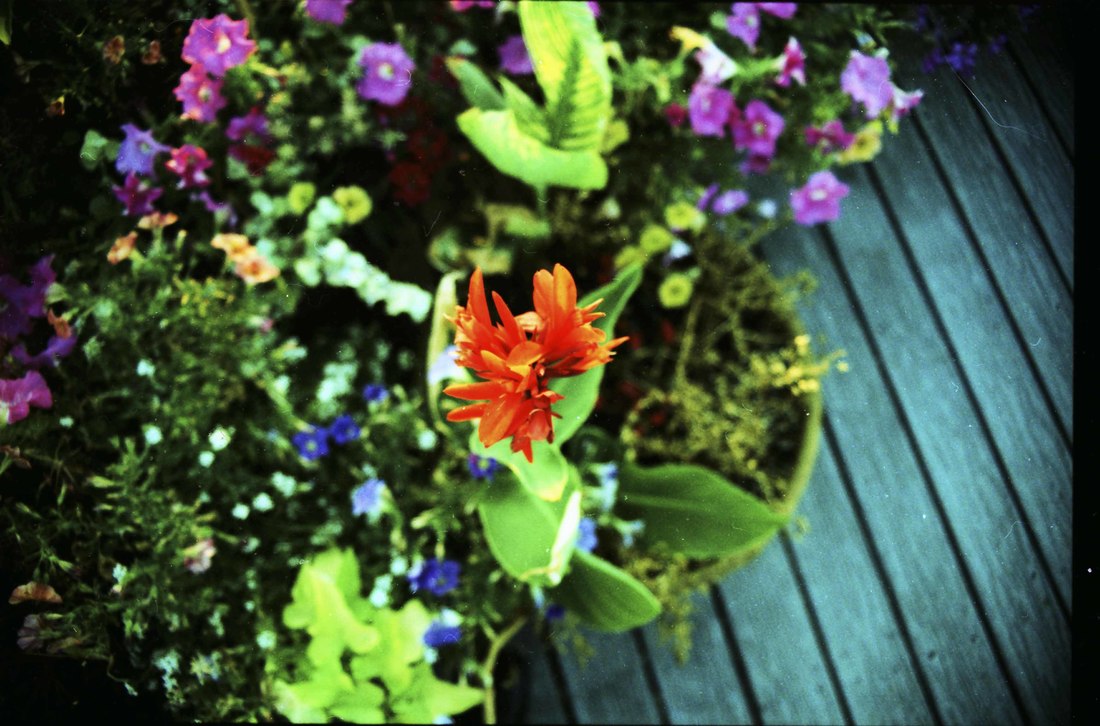
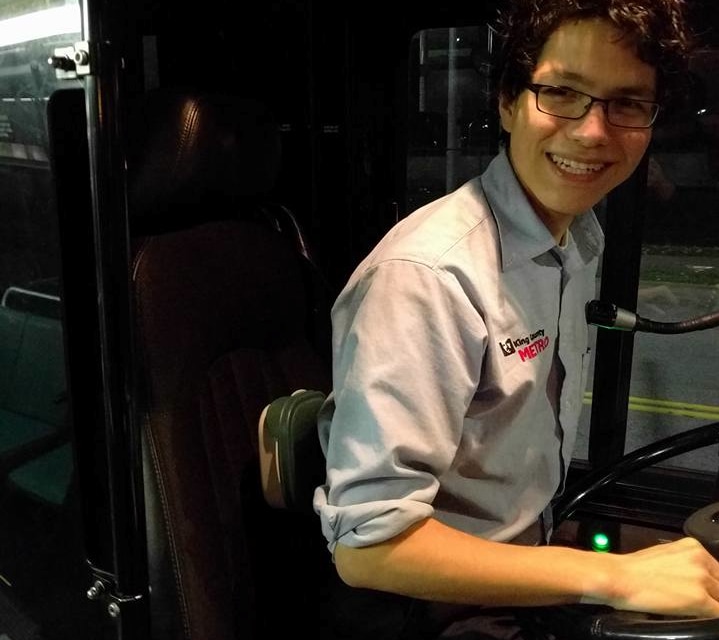
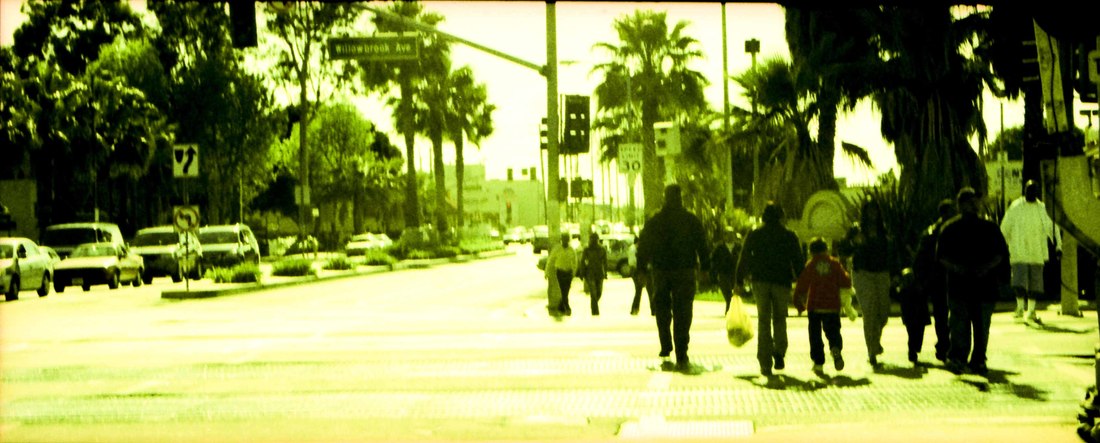

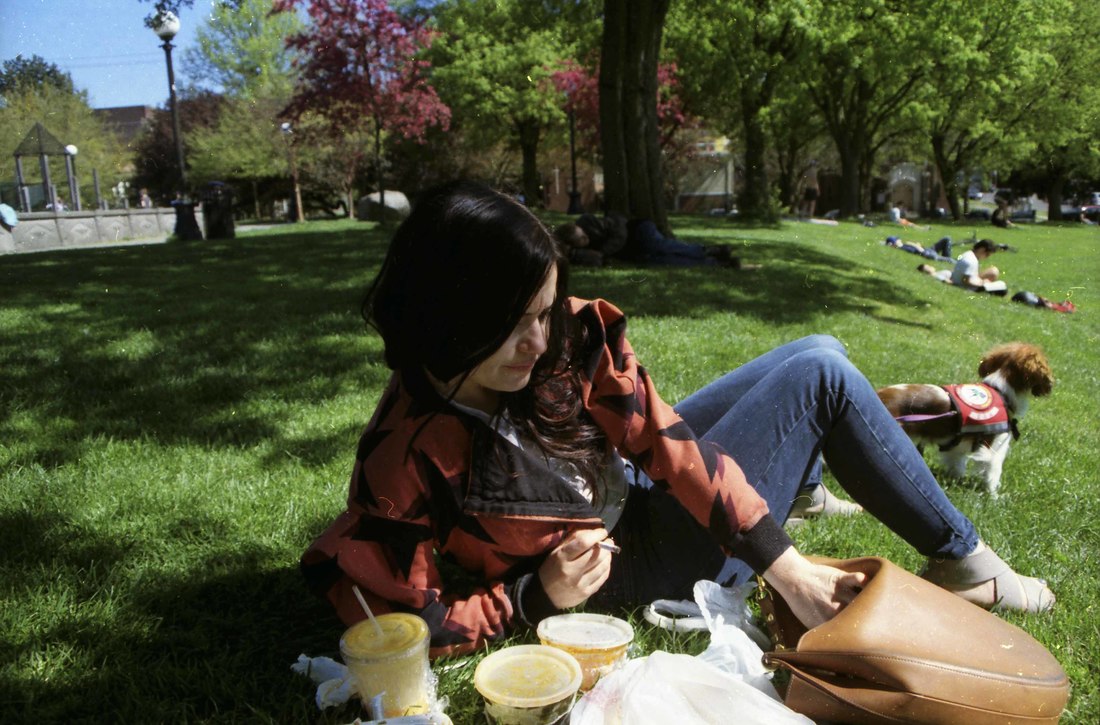
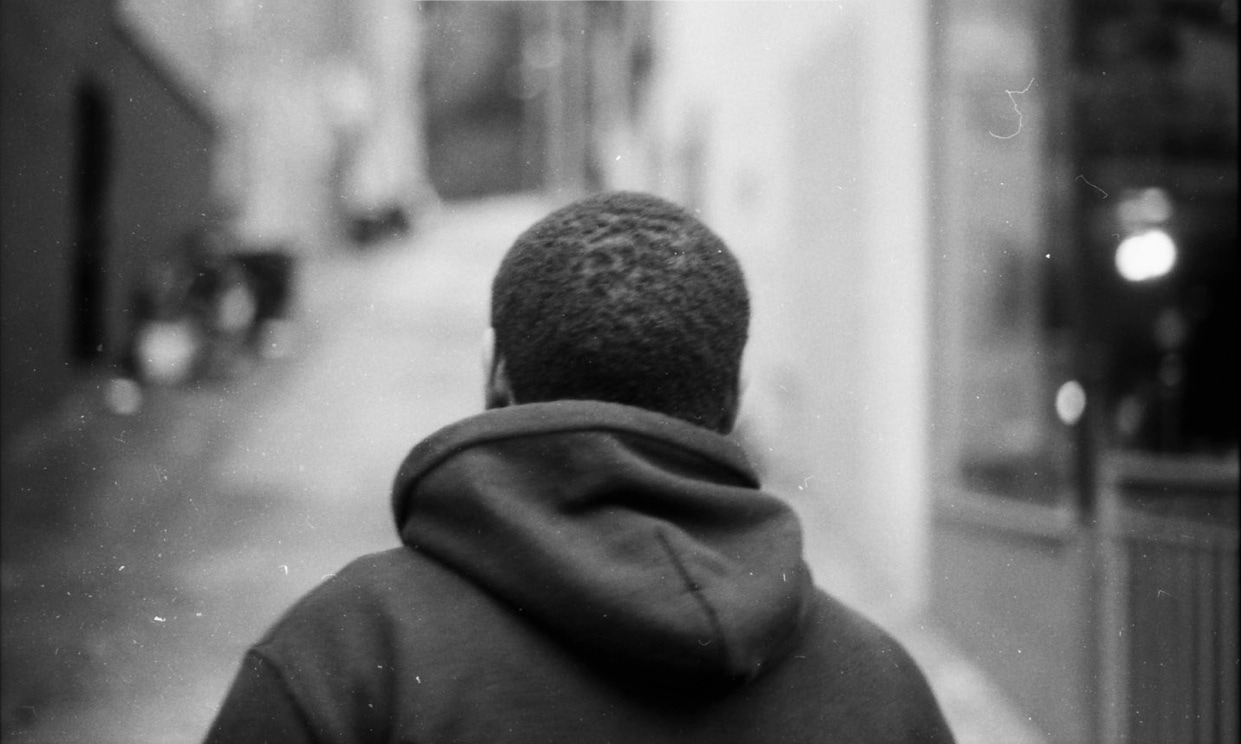
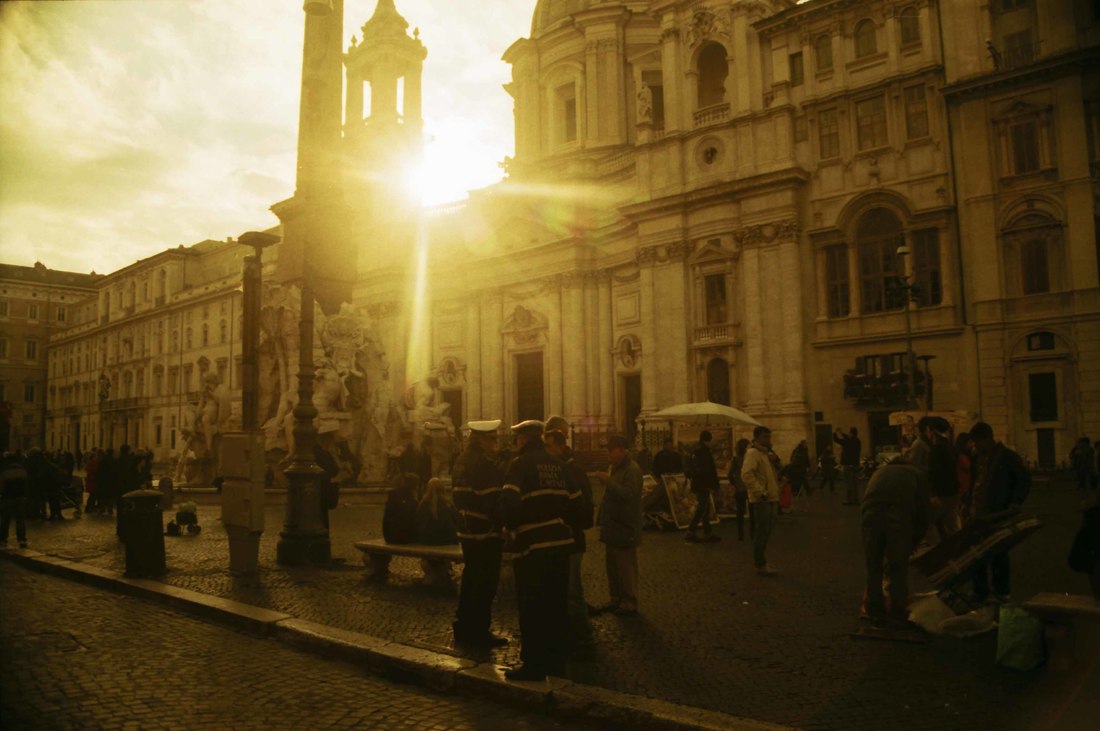
 RSS Feed
RSS Feed
